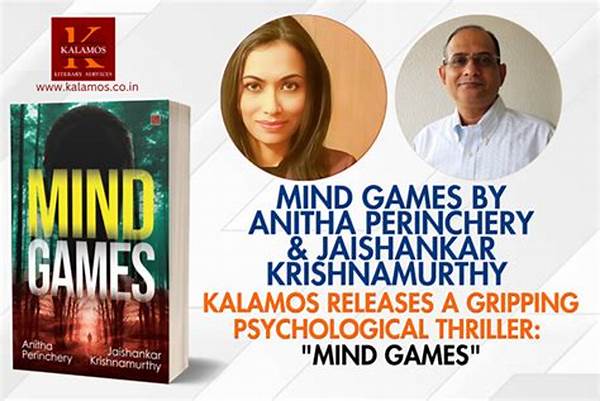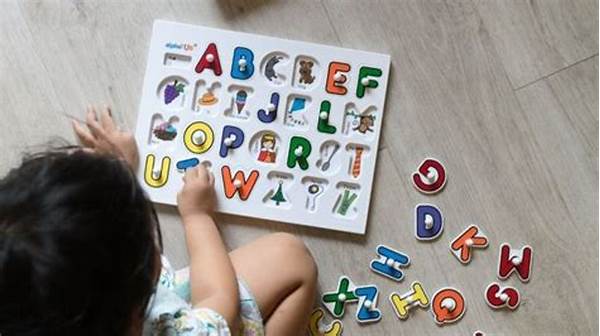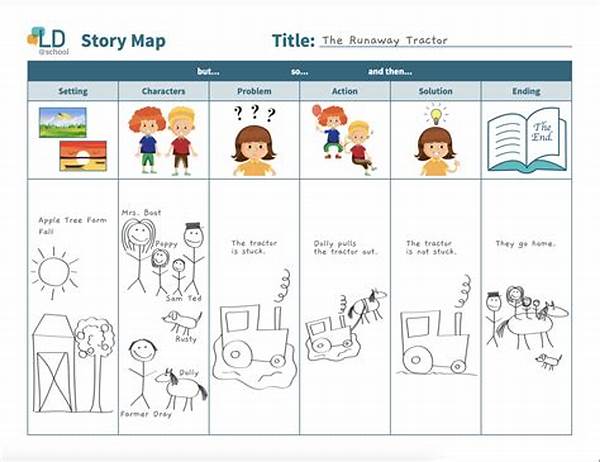It all started one foggy night when Jack stumbled upon an old, dusty book at a secondhand store. The cover read, “Mind Games: The Art of Psychological Thrillers.” Intrigued, he plunged into a world where the lines between reality and illusion blurred, drawing him into a narrative that tested the limits of his own psyche. The deeper he ventured, the more intoxicating the pull of the psychological thriller mind games became, twisting his thoughts, entangling his senses, and challenging his grasp on sanity.
Read Now : Technology In Language Education
The Allure of Mind Games
Psychological thriller mind games are like a drug, enticing readers with promises of suspense, surprise, and the kind of excitement that keeps you turning pages way past your bedtime. You dive into a world where the unreliable narrator and unexpected plot twists are the norm. It’s a dance through a labyrinth of deceit, with characters often walking the fine line between genius and madness. The psychological tension hooks you as the story unfolds, revealing layer upon layer of intricacies that tease and torment the mind. You lose yourself in a sinister world where nothing is quite what it seems.
These stories mess with your head, turning simple plotlines into complex puzzles where every character might be a foe. Readers thrive on the adrenaline rush these mind games provide, craving those hairpin turns that keep the pulse racing. It’s a genre that doesn’t just tell a story; it invites you to play along with the madness, to see if you can outsmart the characters or if you’ll be taken for a ride alongside them. The psychological thriller mind games craft an experience that’s both unnerving and exhilarating, a testament to the power an author’s pen has over our minds.
Unlike the comfort of knowing good will prevail, these stories offer no such guarantee. Each tale is a cerebral challenge, daring you to question what you know and turn convention on its head. In the world of psychological thriller mind games, you have to be ready to leave predictability at the door and prepare for a ride unlike any other—the real kicker is that you just might enjoy losing yourself in the chaos.
Slang and Suspense
1. Mind-bender: This is your traditional brain twister but with a sinister twist. Nothing’s straightforward; every clue or piece of info seems to lead you down a rabbit hole, hyper-stimulating the psychological thriller mind games.
2. Head trip: Enter a journey where your mind’s the travel guide. You never know whether you’re coming or going, lost in the psychological thriller mind games that toy with your reality and push boundaries.
3. Mind-freak: It’s when your brain goes haywire. Characters and plot reveal hidden layers in a psychological thriller that stuns and amazes, leaving you questioning what’s real and what’s mind games.
4. Crazy twist: Just when you think you’ve figured it all out, bam! A plot twist changes everything in the psychological thriller mind games, throwing your theories out the window.
5. Plot grenade: Everything’s chill, then suddenly—kaboom!—a revelation detonates, taking the psychological thriller mind games to the next level of chaos and intrigue.
Lingo and Layers
The art of weaving psychological thriller mind games goes hand-in-hand with the use of vibe-y, streetwise lingo. This slang isn’t just sprinkle on top; it’s the secret ingredient that spices things up and hooks readers in deeper. Authors use slang to build an atmosphere that feels lived-in, authentic, and urgently real.
Slang brings characters to life, making them relatable, grounded in a reality that’s as chaotic and unpredictable as the mind games unraveling on the pages. The cool, snappy dialogue is a cover story for the dense, tense narratives bubbling beneath. Every quip and phrase rides on the edge of familiarity and mystery, mirroring the genre’s knack for the unexpected.
Incorporating slang is like weaving a tapestry of language that teeters between the everyday and the extraordinarily complex. It’s gritty, edgy, and sharp, precisely the vibe you want when immersing into psychological thriller mind games. These tales demand a lexicon that’s fluid, shifting the narrative pace and adding layers to character interactions, making you a co-conspirator in the mystery.
Cracking the Slang Code
1. Mind twist: This ain’t a simple riddle—we’re talking a full-on mental playbook that up-ends the story, indicative of the psychological thriller mind games.
2. Brain scrambler: Your noggin’s in the blender and set to high. The unexpected plotlines and character arcs leave the audience dazed but intrigued.
3. Puzzle palace: Every scene feels like stepping into an intricate maze where you have to piece clues from the psychological thriller mind games together.
4. Brain maze: It’s not just twists and turns; it’s a full-on psychological expedition dizzying enough to keep you on your mental toes.
Read Now : New Book Releases On Amazon
5. Mind warp: Narratives that give a sucker punch to your cerebrum. Just when you think you have it pegged, it shifts under the genre’s psychological weight.
6. Synapse snap: Sure, neurons are supposed to fire off, but not like this! The connections in psychological thriller mind games are astounding yet confounding.
7. Mental tickler: A tease of what’s to come, these narrative nuggets tug on your curiosity, essential in keeping psychological thriller mind games suspenseful.
8. Logic bomb: Rational thought goes up in smoke. What’s left is a playground for the narrative chaos characteristic of psychological thriller mind games.
9. Conundrum cycle: That spiraling loop of the plot leaves you circling, getting nowhere fast, as tension builds within psychological thriller mind games.
10. Enigma engine: Every story propels forward with layer upon layer obscuring any obvious conclusions, hallmarks of psychological thriller mind games.
Psychological Puzzle
The psychological thriller mind games genre isn’t just about entertaining; it’s a narrative deep dive into one’s own perceptions and the complexities of the human mind. When reading or watching these mind-bending puzzles, you’re inviting a mental workout, challenging your problem-solving skills as if you’re a detective working alongside the characters. The allure doesn’t stop at mere suspense; it rattles the very cage of your thought processes.
This genre thrives on character development that teeters on the edge of madness, walking the tightrope between genius and delusion. Dialogues are often cloaked in slang that gives off an air of authenticity, making them relatable while still hinting at dark undercurrents. The use of slang is both future-forward and street-smart, wrapping the reader up in an intimate conversation, pulling them deeper into the mind games. When you consume these stories, your engagement goes beyond comprehension; it’s about immersion into the very essence of psychological thrillers.
Slang in the Shadows
However, the real beauty of psychological thriller mind games is how they blur the boundaries between the narrative and the audience. Authors manipulate words, much like conducting a symphony, leaning heavily into the use of slang to create harmony in chaos. The words flow like cracked code, effortlessly crackling with tension, reflecting characters’ quirks and deeper narratives that consume them.
This vibrant interplay uses language that appeals to the primal thrill of danger and uncertainty. The dialogue serves not just as communication but as a coded exchange that teases the unwary into comfort before wrenching them back into tension. Slang injects spice into the storyline, keeping it electrified and edgy, ensuring souls are glued to the saga unfolding. It’s the heartbeat to the pulse of lore spinning out those mind games that make you question your reality, one clever phrase at a time.
The Unraveling Truth
Underneath the surface of psychological thriller mind games lies a carefully constructed schema where the unexpected becomes the norm. The relationship between the plot and its readers is symbiotic—each twist invites interpretation, tempting you to unearth the truth hidden beneath layers. The writers weave tales that are not just heard or seen but experienced, meaning every piece of slang put in dialogue acts as a signpost to deeper meanings.
Slang in these stories isn’t just stylistic flair; it’s essential in crafting the rich, fragmented world these thrillers operate in. It provides cultural context and psychological depth while enhancing emotional texture. This skillful interplay of language and subtext induces excitement and anticipation, turning the reader into an investigator on the trail of solutions to the mind games laid out before them.




